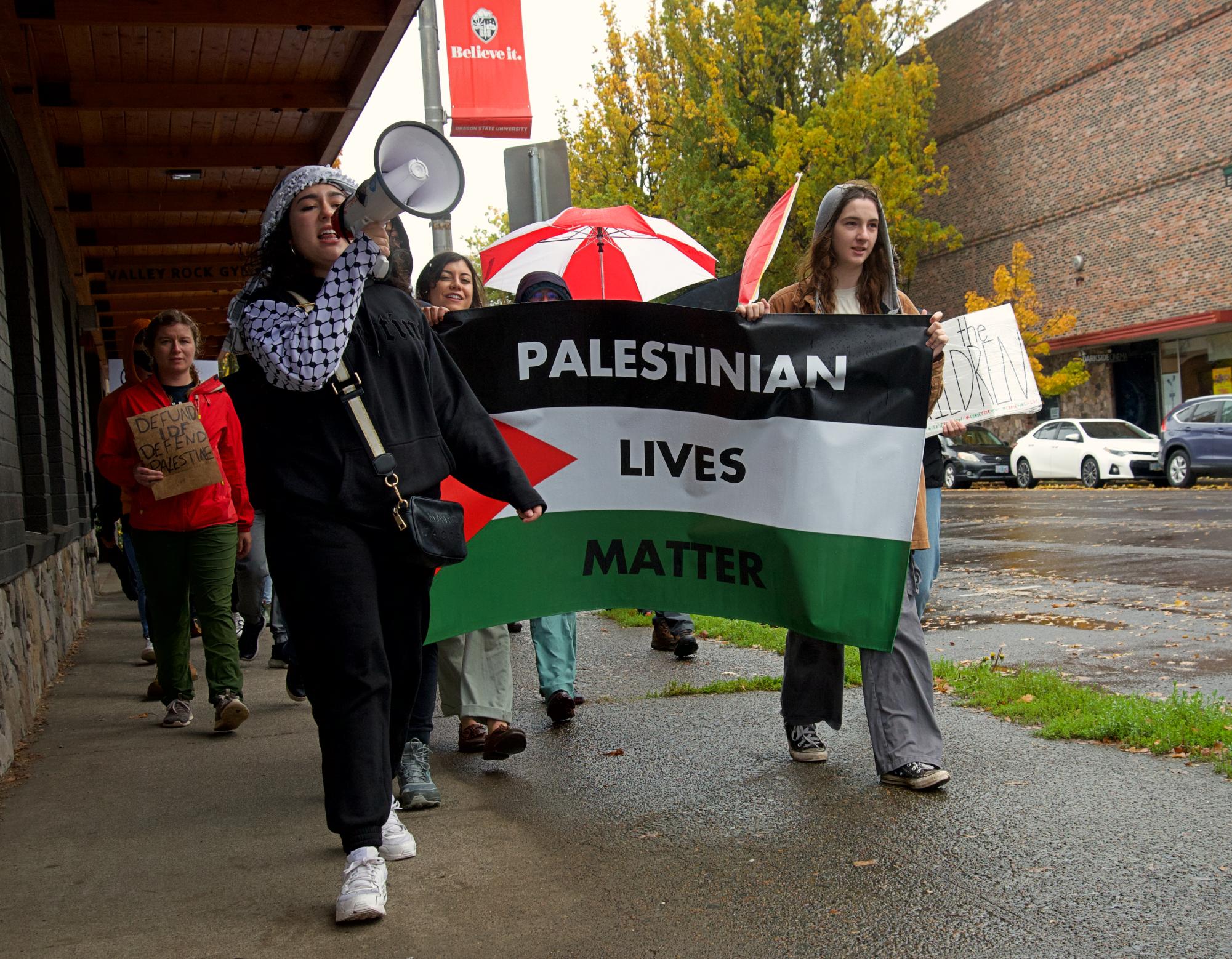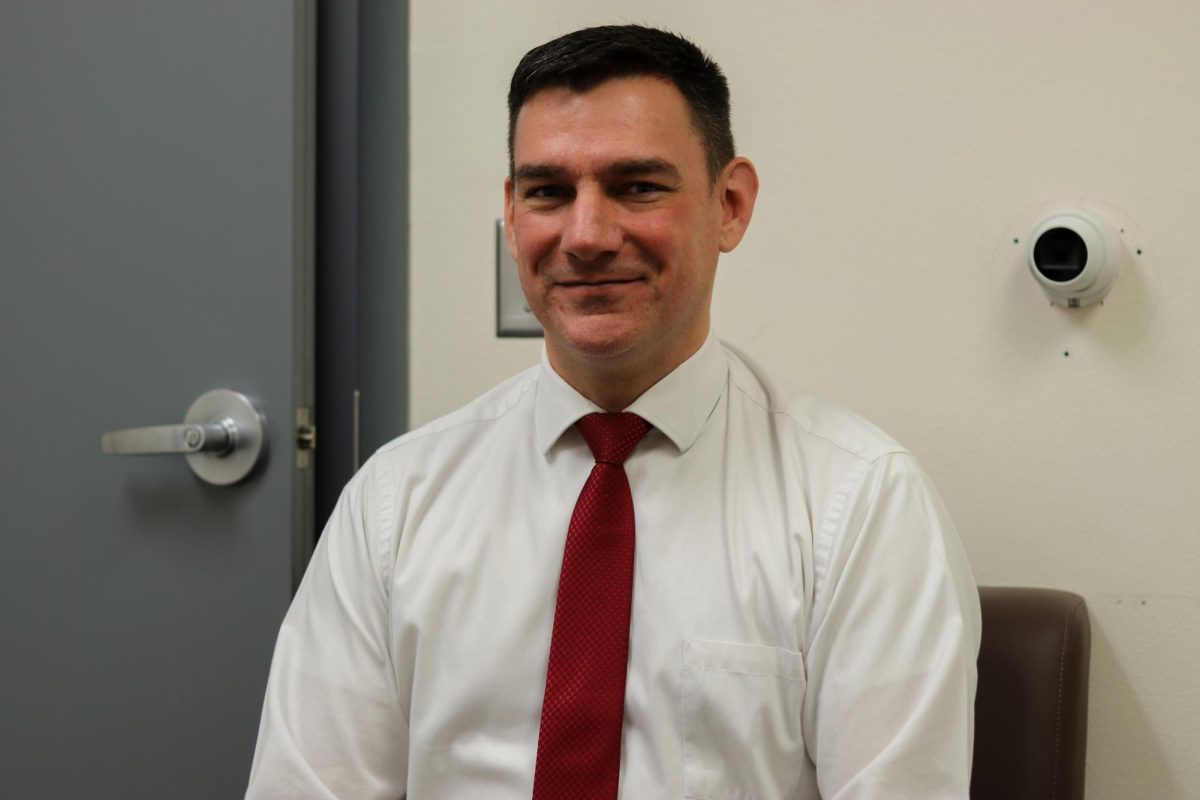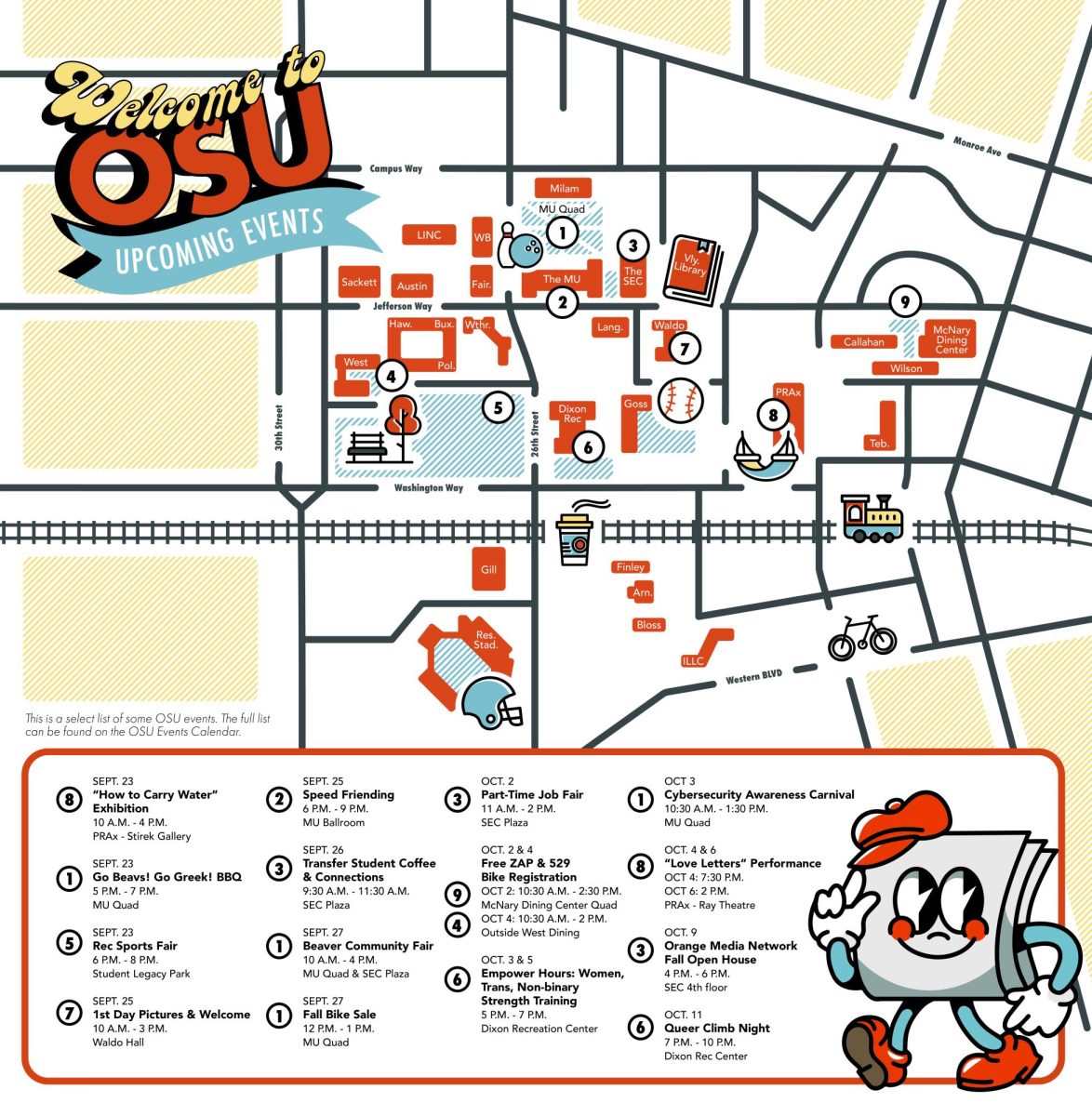Over 7,000 miles from the region where Israel and Hamas forces are engaging in deadly conflict, some students at Oregon State University find that distance means nothing when a war hits close to home.
On Oct. 7, Hamas, a Palestinian political party and militant movement, launched a deadly attack on Israeli soil, killing Israeli citizens in their homes and taking about 240 citizens as hostages into Gaza.
According to Dr. Yiftach “Kevin” Osterloh, an OSU professor and historian specializing in ancient Jewish history, the attacks by Hamas “showed a level of brutality that Jews haven’t seen since the days of the pogroms,” going on to describe the violence as a level of “Nazi-esque brutality.”
After the attack by Hamas, the Israeli military declared a “state of war alert,” launching attacks on the Gaza Strip which included airstrikes of residential buildings and health care facilities, according to the United Nations.
These attacks have continued since.
As the war abroad continues to rage, many Jewish, Israeli and Palestinian students at OSU are left grappling with the effects of the conflict on their own lives, with many seeking support from local student groups and communities to help them navigate their distress.
The conflict in Gaza is one in a decade’s long series of deadly clashes between Israel and Palestine, this time leading to the deaths of more than 1,200 Israelis, mainly on Hamas attacks on Oct. 7, and over 11,000 Palestinians since Oct. 7 according to Associated Press reports as of Nov. 14.
Due to blockades imposed by Israel, residents of the Gaza Strip are at the risk of starvation as food, water, electricity and humanitarian aid have been extremely limited in entering the enclave of over two million people, where nearly half of the population is under the age of 18.
“This did not start on Oct. 7,” said an OSU student, Heba, who requested her last name be withheld.
Heba, a Palestinian student with family currently living in Gaza, feels the Oct. 7 attack occurred as a reaction to the occupation of Palestinian territories by Israel for the past 75 years.
The region previously recognized as Palestine fell under Israeli control on May 15, 1948 in an event referred to by much of the Arab world as the “Nakba,” or “the Catastrophe.”
According to Jewish Voice for Peace, the “Nakba” occurred after the British mandate of the area ceased in 1948, displacing over 700,000 Palestinian Arabs and marking the official installation of the Jewish state of Israel.
Although the history behind the region is layered, Heba feels that referring to the years-long conflict as ‘complicated’ discourages individuals from educating themselves on an issue she believes hits close to home for many Americans.
“It’s not just some kind of foreign conflict, because we have a direct hand in this,” Heba said. “We’re funding it.”
The United States is an ally of Israel and has publicly backed the nation in some of its retaliation of the Oct. 7 attacks. On Nov. 2, the U.S. House of Representatives passed plans to provide an aid package of $14.3 billion dollars to Israel, according to Reuters.
Due to U.S. involvement, Heba feels that her American citizenship and tax dollars have been weaponized.
“That’s the horrible thing,” Heba said. “I feel like I’m killing my family.”
Many OSU students have felt distressed as the days of war in Gaza continue and many have begun searching for a community which both supports and understands their grief.
Students United for Palestinian Equal Rights, a national student organization that came to OSU in 2017 but had sat dormant in recent years, has begun working to regain their presence on campus in hopes of uniting and advocating for Palestinian students.
With or without the support of an organization, OSU students from varied backgrounds and standpoints have begun to come to terms with the war and its toll on their lives.
Hillel International is a pluralist Jewish campus organization that serves over 850 college campuses, including OSU.
Lev Silberstein, OSU Hillel’s director of Jewish student life, describes his job’s main focus as working to support all students regardless of their background, though the nature of his organization sees him working with a predominantly Jewish demographic.
Two months ago, Silberstein helped host a group of Oregon students on a trip to Israel. It was on this trip, he said, that he and the group visited the Kfar Aza Kibbutz.
Less than three miles from the border of the Gaza Strip, the Kfar Aza Kibbutz was a small and nonconventional agricultural community with a population of around 750 residents.
Only weeks after Silberstein’s trip, the kibbutz was devastated after a group of Hamas militants entered the commune and massacred over 100 people, including men, women and children.
Upon hearing about Hamas’ initial invasion into Israeli territory, Silberstein felt himself pulled in two directions: one of devastation and one of guilt.
“I felt for the people of Israel and the Jewish people and the Palestinian people. Because unfortunately … as bad as it was going to be for Israel, and it’s been horrific, it was going to be worse for the people of Gaza,” Silberstein said.
However, Silberstein also spoke of the separation between denunciation of the Israeli government and anger towards Jewish people as a population, the lines of which he believes are quickly becoming blurred.
“It starts as anti-Israel sentiment, but that acts as a catalyst and makes people feel safer to be openly anti-Semitic,” Silbertein said.
On Oct. 8, only a day after the first attacks were launched by Hamas, Israeli Prime Minister Benjamin Netanyahu formally declared war against the militant group in a televised address.
“I’ve barely been able to focus on school,” said Yael Raich, a Jewish student and member of OSU’s Hillel organization.
Holding dual citizenship in both Israel and the U.S., Raich said the worry for her extended family–all living in Israel–has left her unfocused and in tears for many of the days since the conflict began.
Two of Raich’s cousins had recently completed their mandatory time in the Israel Defense Forces, the national military of Israel which requires every able Jewish citizen over the age of 18 to serve for a minimum of two years.
However, following the Hamas invasion, one of Raich’s cousins was called back into service for the ground forces.
Raich also fears for the safety of her younger cousin, who is not yet a year old.
“I want him to be able to experience peace,” Raich said. “And experience life.”
Though groups at OSU, such as Hillel, seek to offer support to students distraught by the ongoings in Israel and Gaza, some Jewish students feel their personal ideologies exclude them from the campus’ Jewish community.
Adrian Ostrow, a first-year student at OSU, describes himself as a “Jew for Palestinian freedom.” It’s for that reason, he claims, that he feels wary of inserting himself into any of the Jewish communities on campus.
“It’s not just a default that a Jewish person is going to be pro-Israel,” Ostrow said.
Citing both his views on Palestine and his personal relationship with the faith, Ostrow instead chooses to turn to his family when in need of comfort, though he says he is still searching for community.
“It’s been hard to find ways to support myself, especially because the Jewish community here is so small, but I’ve been talking with my family and just kind of trying to stay as informed as I can,” Ostrow said.
Like Ostrow, many Palestinian students are supporting themselves through family or alone as they struggle to process the war.
The outburst of violence came as a shock to Jane, a pseudonym for a Palestinian student who wished to remain anonymous. She had thought things were getting better between Israel and Palestine.
Only a few months before the attack, Jane had traveled to Palestine through the Tel Aviv airport, a feat for a Palestinian-American who, until recently, had been prohibited from using Israeli airports, according to the Jewish Telegraphic Agency.
Still, Jane had memories of trips past at her family’s home in Ramallah, the de facto capital of Palestine located in the West Bank, where she had watched missiles fire towards the Gaza Strip as if they were fireworks.
“You could feel the ground shaking,” Jane said.
As the war in Gaza has continued throughout the weeks, Jane has been reserved in sharing her opinion. As a Middle Eastern and Palestinian woman, she says it’s difficult to speak out.
“I feel like I can’t,” Jane said. “I don’t really have a voice.”
Jane also fears the loss of friends if she speaks out, wanting to avoid political confrontations. Instead, she finds support through her family back home, though the news she receives is often only more dreadful.
“My family was texting me (saying) ‘we’re honestly just scared,’” Jane said. “They don’t know what’s going to happen.”
Kusai Abualrub, an OSU student and son of two Palestinian immigrants, spent nearly every summer with his family in Jenin, a city in the northern part of the West Bank. He also fears for his family in Palestine.
Abdualrub remembers once being bombarded at his family’s home by soldiers whom he believed to be members of the Israel Defense Forces. The intruders told him his family had to leave immediately as their home bordered the site where rockets were soon to be launched.
Over the years, Abualrub became used to hearing updates from his family of what seemed to be a never-ending fight between Israel and Palestine, but the news he heard on Oct. 7 immediately struck him as out of the ordinary.
“This time the (attack is) by an organization that we as Palestinians don’t really support,” Abualrub said.
Like Jane, Abualrub has found himself calling on his family for support during times of uncertainty. For students unable to look to their relatives when in need, Abualrub advises to find support elsewhere.
“Just try to reach out to anyone who understands, or anyone that can support (you) on a really deep level,” Abualrub said.
As students and communities at OSU continue to grapple with the grief and fear of the war in Gaza, a shared aspiration for the future of the region has become clear among them all, no matter their background.
Robert Horenstein, the director of community relations at the Jewish Federation of Greater Portland, summarized the mutual conviction.
“Peace. That’s always the hope,” Horenstein said. “That’s always the ultimate hope.”

















































































































